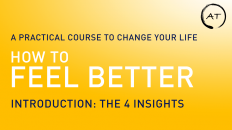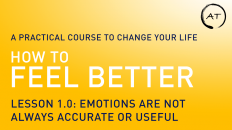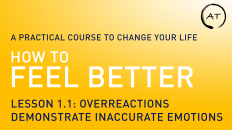A prime example of how our emotions linger in our background is stress. Stress plays a large part in the modern lifestyle. The mantra “work hard, play hard” hardly sounds relaxing.
Stress manifests physically in the body. When we our stressed, our muscles tighten, readying for action in the fight-or-flight response. This is why we call stressed people “tightly wound.”
Imagine Sarah starts a new, intense job. For the first month, she notices the long hours wearing her down. That and the new challenges she is facing make her feel stressed. Once she adjusts, the intensity of the stress lessens, but does not go away completely. To Sarah, her new state of “more stressed” now feels like “stress-free.” After 5 years and 3 promotions in this rigorous career, Sarah notices she has pain in her spine. She goes to the doctor, who tells her she has back pain. Sarah never injured her back. Her physical pain is the result of prolonged muscle tightness. The muscle tightness is due to the stress that Sarah doesn’t even notice.
Even the emotions we don’t notice can have an impact in our lives.
In fact, the emotions we don’t notice may be driving our deepest desires and fears.
Some people want money to combat their insecurity. Though they accumulate wealth relentlessly, their insecurity remains. The worst part is that these people don’t notice their insecurity. If they just stopped to look at why they want money, they may be able to break their own cycle.
The other issue with these subconscious emotions is that they take up energy.


